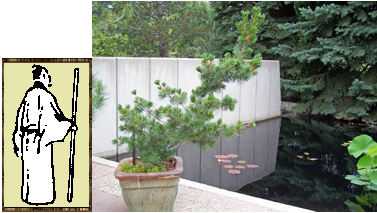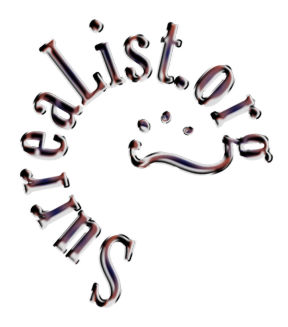
Hexagram Fifty-nine—Dispersing
Hexagram Fifty-nine shows a state of moral degradation that can be rectified through belief in a higher power. When the king sets up his altar and becomes immersed in faith, then great things can happen.
The first line, yin, shows one who rescues another with the help of a strong and able horse.
The second line, yang, shows the time of danger has passed. The rescuer and the person rescued both seek refuge in the horse's strength.
The third line, yin, shows one who overcomes their own limitations to help another person in need. Being able to set one's own needs aside for the sake of another shows strength of character.
The fourth line, yin, shows one who is able to break up an angry crowd. Then from the people who have disbursed, assemble a productive crew. This is an example of wisdom.
The fifth line, yang, shows a king calling out to his citizens, even though they've been forced out of their land. The king is in the proper position, so let him continue.
The sixth line, yang, shows one who takes precautions to avoid a dangerous situation, just as one may cover their wounds. One must do what is possible, yet still keep out of trouble.
Hexagram Fifty-nine Commentary
This hexagram describes a state of moral degradation because people have turned cynical. The introduction offers a solution in the form of a metaphor. The king decides to trust in a higher power, that things will get better, so he sets up his altar. When the king immerses himself in faith, his confidence has the power to set things right.
The subject of the first line, yin, rescues another person "with the help of a strong and able horse."
The second line, yang, explains how the power of the horse is to get both people home and away from the troubling situation.
The third line, yin, summarizes what happened in the rescue. The subject of the first line used the power of the horse to overcome their own limitations and help the second person. Another thing to learn from this is how one person can set aside their own needs for the sake of helping another person in need.
The fourth line, yin, shows another power of faith and confidence. The subject of this line breaks up an angry crowd, then assembles a productive crew from those who have been disbursed. The subject of this line has enough experience to turn an angry crowd into a useful crew.
The fifth line, yang, shows a faithful king calling out to his citizens. Due to bad times, the citizens were forced off their land, but the king is taking steps to make things right again.
The subject of the sixth line, yang, takes precautions to avoid danger during the bad times. The line compares this to a person who may cover his or her wounds to protect themselves from further pain. The advice is to do whatever is possible, but stay out of trouble.
To the reader: Most of the hexagrams have at least one line that predicts bad results, but that does NOT mean you are fated to that result. The hexagrams illustrate different attitudes, so study the actions and reactions to learn the attitudes that will lead to better outcomes.
The I Ching teaches you to flow with changes and create positive change from the inside through conscious living. Your future is in your hands. Consult the I Ching for ideas that lead to clear thinking and positive mental attitude. Reading the I Ching helps you take the time to reflect on your attitudes and ideas. Continue asking until you feel positive about your course.

Click here for another hexagram.
A note about this interpretation of the I Ching: Nori Muster wrote this version of the I Ching in 1994 and put it online at Surrealist.org in 2000. It is also available at Amazon:
e-book
paperback
